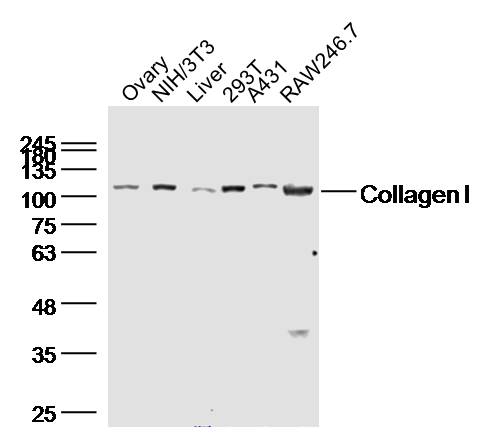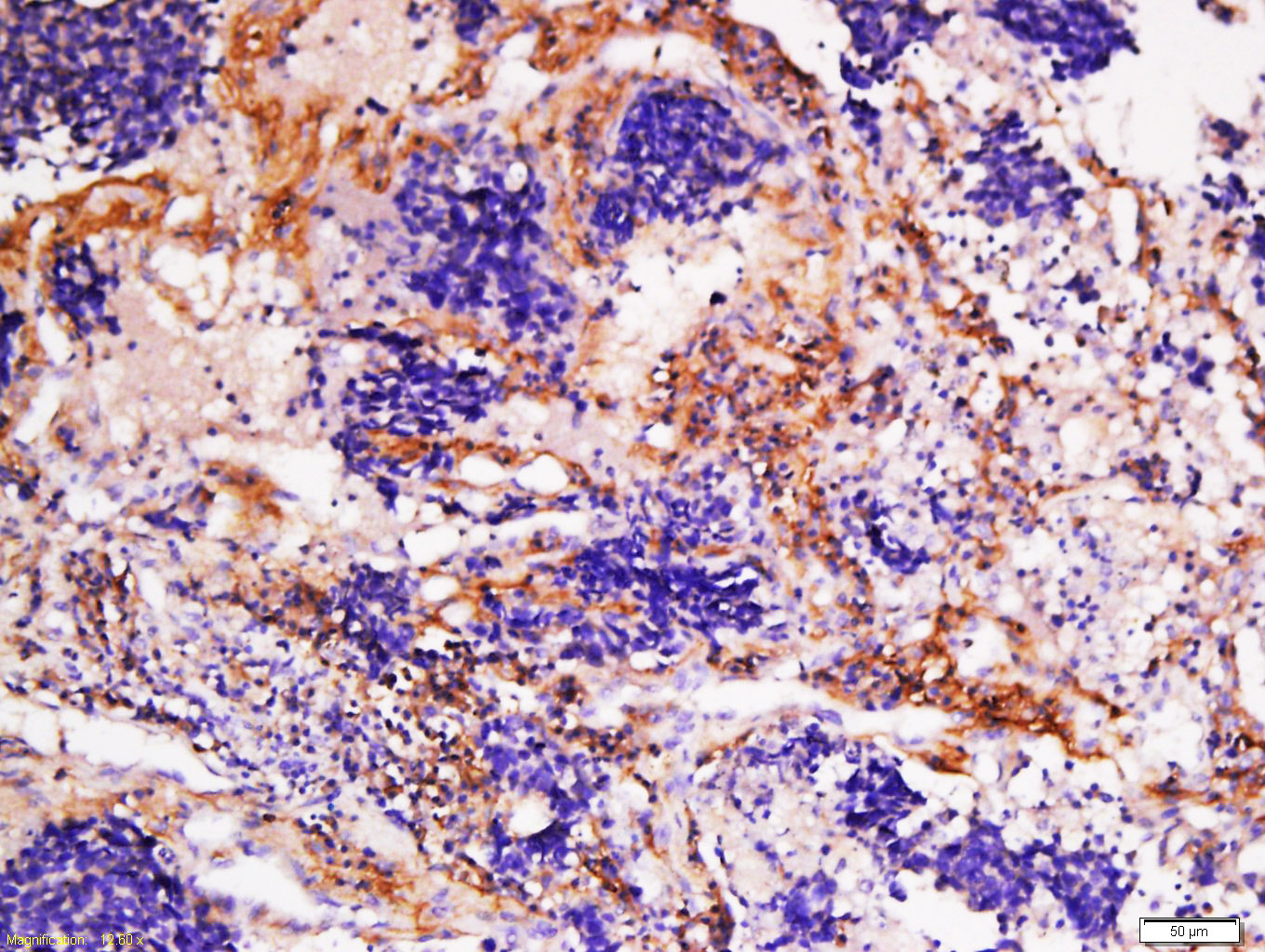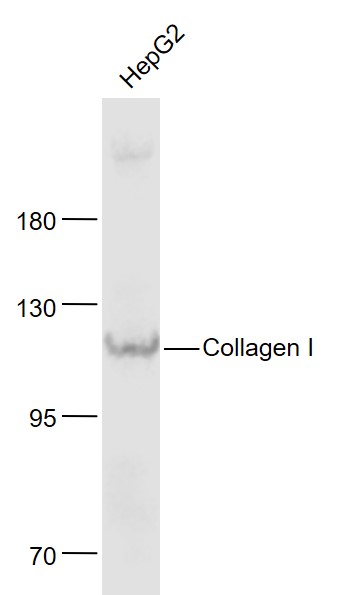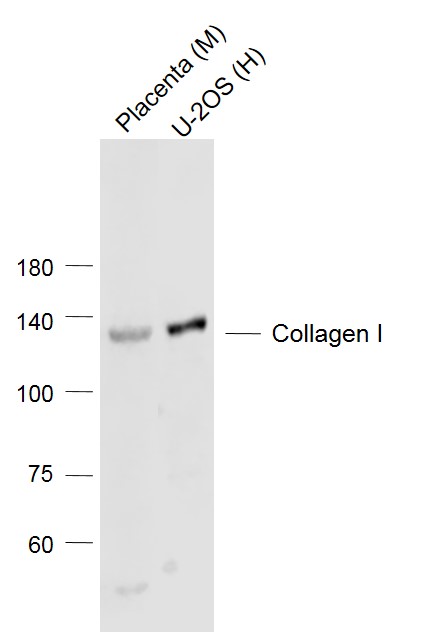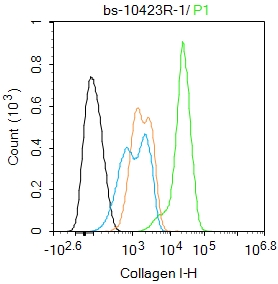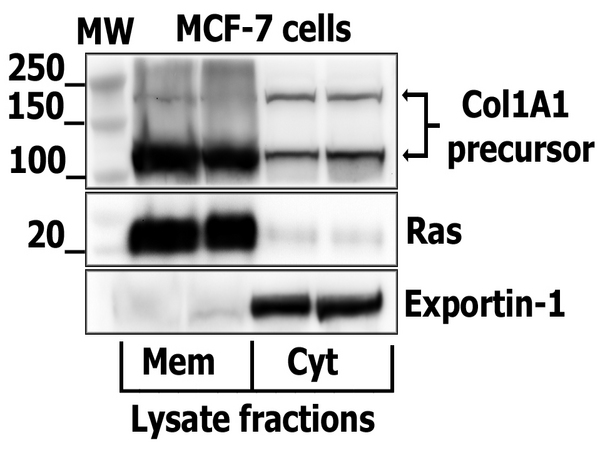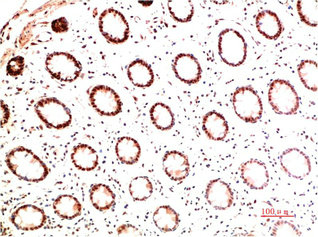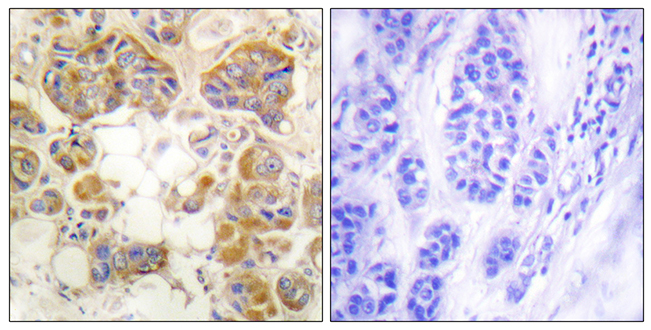
This image was kindly submitted by Kandy Velazquez of USC School of Medicine._x000D_ Mouse adipose tissue lysates probed with Collagen I Polyclonal Antibody, unconjugated (bs-10423R) at 1:1000 overnight at 4°C followed by a conjugated secondary antibody at 1:2000 for 60 minutes at room temperature.
Collagen I Polyclonal Antibody
BS-10423R
ApplicationsImmunoFluorescence, Western Blot, ImmunoCytoChemistry, ImmunoHistoChemistry, ImmunoHistoChemistry Frozen, ImmunoHistoChemistry Paraffin
Product group Antibodies
TargetCOL1A1
Overview
- SupplierBioss
- Product NameCollagen I Polyclonal Antibody
- Delivery Days Customer16
- ApplicationsImmunoFluorescence, Western Blot, ImmunoCytoChemistry, ImmunoHistoChemistry, ImmunoHistoChemistry Frozen, ImmunoHistoChemistry Paraffin
- Applications SupplierWB(1:200-1000), IHC-P(1:200-1000), IHC-F(1:200-1000), IF(1:200-1000), ICC/IF(1:50-200)
- CertificationResearch Use Only
- ClonalityPolyclonal
- Concentration1 ug/ul
- ConjugateUnconjugated
- Gene ID1277
- Target nameCOL1A1
- Target descriptioncollagen type I alpha 1 chain
- Target synonymsCAFYD, EDSARTH1, EDSC, OI1, OI2, OI3, OI4, collagen alpha-1(I) chain, alpha-1 type I collagen, alpha1(I) procollagen, collagen Col1-ColIII-1, collagen Col1-ColIII-2, collagen alpha 1 chain type I, collagen alpha-1(I) chain preproprotein, collagen of skin, tendon and bone, alpha-1 chain, collagen, type I, alpha 1, pro-alpha-1 collagen type 1, type I proalpha 1, type I procollagen alpha 1 chain
- HostRabbit
- IsotypeIgG
- Protein IDP02452
- Protein NameCollagen alpha-1(I) chain
- Storage Instruction-20°C
- UNSPSC12352203
References
- Gao X, Zhong S, Tong Y, et al. Alteration and prognostic values of collagen gene expression in patients with gastric cancer under different treatments. Pathol Res Pract. 2020,216(3):152831. doi: 10.1016/j.prp.2020.152831Read this paper
- Yang J, Tao Q, Zhou Y, et al. MicroRNA-708 represses hepatic stellate cells activation and proliferation by targeting ZEB1 through Wnt/β-catenin pathway. Eur J Pharmacol. 2020,871:172927. doi: 10.1016/j.ejphar.2020.172927Read this paper
- Han B, Lv Z, Zhang X, et al. Deltamethrin induces liver fibrosis in quails via activation of the TGF-β1/Smad signaling pathway. Environ Pollut. 2020,259:113870. doi: 10.1016/j.envpol.2019.113870Read this paper
- Lv Y, Bing Q, Lv Z, et al. Imidacloprid-induced liver fibrosis in quails via activation of the TGF-β1/Smad pathway. Sci Total Environ. 2020,705:135915. doi: 10.1016/j.scitotenv.2019.135915Read this paper
- Wang W, Jia YJ, Yang YL, et al. LncRNA GAS5 exacerbates renal tubular epithelial fibrosis by acting as a competing endogenous RNA of miR-96-5p. Biomed Pharmacother. 2020,121:109411. doi: 10.1016/j.biopha.2019.109411Read this paper
- Liu C, Li Y, Yang Z, et al. Kartogenin enhances the therapeutic effect of bone marrow mesenchymal stem cells derived exosomes in cartilage repair. Nanomedicine (Lond). 2020,15(3):273-288. doi: 10.2217/nnm-2019-0208Read this paper
- Yu B, Yu M, Zhang H, et al. Suppression of miR-143-3p contributes to the anti-fibrosis effect of atorvastatin on myocardial tissues via the modulation of Smad2 activity. Exp Mol Pathol. 2020,112:104346. doi: 10.1016/j.yexmp.2019.104346Read this paper
- Hu N, Wang C, Dai X, et al. Phillygenin inhibits LPS-induced activation and inflammation of LX2 cells by TLR4/MyD88/NF-κB signaling pathway. J Ethnopharmacol. 2020,248:112361. doi: 10.1016/j.jep.2019.112361Read this paper
- Wu C, Chen W, Ding H, et al. Salvianolic acid B exerts anti-liver fibrosis effects via inhibition of MAPK-mediated phospho-Smad2/3 at linker regions in vivo and in vitro. Life Sci. 2019,239:116881. doi: 10.1016/j.lfs.2019.116881Read this paper
- Chen X, Li XF, Chen Y, et al. Hesperetin derivative attenuates CCl(4)-induced hepatic fibrosis and inflammation by Gli-1-dependent mechanisms. Int Immunopharmacol. 2019,76:105838. doi: 10.1016/j.intimp.2019.105838Read this paper

